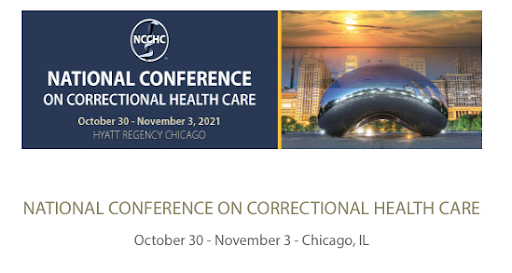
We’ve compiled top highlights from recent news, research, and resources across the world for our latest IACFP International News summary. Our topics for July and August include international resources for treatment of justice-involved individuals, mental health research and training, and upcoming conferences.
1. Treatment of Justice-Involved Individuals
- Book Revw of CBT with Justice-Involved Clients, Criminal Justice and Behavior, Online May 2021
The book review of CBT with Justice-Involved Clients first appeared online in May 2021 and will be included in a future print issue of Criminal Justice and Behavior. The book review was written by Mark E. Olver and Keira C. Stockdale. The authors of CBT with Justice-Involved Clients was written by Raymond Chip Tafrate, Damon Mitchell, and David J. Simourd.
The book review starts by acknowledging the influence and advocacy of Dr. J. Stephen Wormith. Dr. Wormith’s contributions to the field were previously summarized in the IACFP Newsletter in May 2019, shortly after his passing. As noted in the book review, Steve was “an advocate for creative, novel, and effective approaches for the assessment, treatment, and management of justice-involved clients—this included highly practical resources such as Tafrate et al.’s (2018) CBT with Justice-Involved Clients.”
Practitioners are always searching for practical resources. This book review clearly states why this book is such a resource. It is a treatment planner for intervention work. The review outlines what each chapter and section covers (i.e., forensic basics; engagement; assessment, case formulation and focus; detailed treatment plans for criminogenic thinking and antisocial orientation; detailed treatment plans for harmful lifestyle patterns; and practice management).
“The biggest strength of this treatment planner, however, is that it is enormously practical and entirely applied. Each chapter contains helpful scripts, practice exercises, and workbook forms for structuring sessions and delivering interventions—all of which are presented in light of helpful case examples.”
The book review does go on to identify additional strengths that the reviewers feel will appeal to practitioners and make it an accessible resource. Additionally, they identify three areas where it might be strengthened. These areas, however, do not lessen the book’s value as a resource and as an important contribution to the field.
- “Changing Prisons to Help People Change” – Recent Report by Brookings-AEI Working Group on Criminal Justice Reform
The report or chapter by Christy Visher and John Eason is available to be downloaded. The focus of the chapter is to rethink the treatment environment of prisons and to develop cognitive behavioral communities. They suggest that “this new approach promotes new ways of thinking and behaving for both incarcerated persons and correctional staff. Behavior change requires changing thinking patterns, and cognitive behavioral therapy (CBT) is an evidence-based strategy that can be utilized in the prison setting. The report also offers short-, medium-, and long-term reforms that can support not only these communities but also more successful community reintegration for justice-involved clients.
- “Beyond Prisons: Women and Community Corrections” – ICPA Taskforce Newsletter, July 2021
This month’s newsletter published by the ICPA Taskforce on Women and Community Corrections focuses on mothers and their children. The newsletter provides an overview of the issue and its importance in the message from the co-chairs, Jennifer Oades and Diane Williams.
The newsletter includes an article written by Dr. Lucy Baldwin on “The Persisting Pains of Maternal Imprisonment.” This article has the additional impact of quotations from mothers to emphasize the points made by the author. Dr. Baldwin points out the long-term impact of imprisonment on maternal identity and maternal role. It is heartbreaking to hear the voices of the mothers describing their emotions and feelings of failure.
An excellent article on what prisons can do to give incarcerated mothers and their infants and toddlers a head start before the mother’s release highlights a recent pilot program (and an earlier Nurturing Healthy Attachments Project) of the Oregon Department of Corrections in the U.S. The program, Parenting Inside Out, begins with an evidence-based parent management training program for criminal justice-involved parents. The second phase builds on the skills of the parent management training with support services, reconnects the parents with minor children, and provides in-person and virtual visiting. This program also includes an Early Head Start Program on-site and representation on the local area Parent Policy Council.
- “The Enduring Love a Child Has for a Parent in Prison” – Journal of Cognition and Development, Volume 21, 2020
A Columbia study highlights the importance of investing resources in parent-child visitation programs and social support for family members left behind. Larisa Heiphetz is an assistant professor of psychology at Columbia and is one of the senior authors of the study on the feelings children have toward their incarcerated parents. The results are that children were more likely to describe their incarcerated parent using positive terms. The study concluded, “These findings demonstrate the robustness of children’s positivity and can inform debates regarding contact between incarcerated parents and their children.”
Heiphetz states, “Ultimately, the gold standard is reducing the number of people incarcerated. But, given that we have our current system, I believe that fostering the parent-child relationship can help mitigate loss and have an impact on a child’s well-being…We hope our work will move psychology forward in terms of incorporating these perspectives into the field.” (Columbia News, 9/30/20)
2. Mental Health in Prisons
- Policies and Practices
The Prison Policy Initiative has recently made available the research they have curated about the relationship between mental health and the criminal justice system. It is available here. They include 134 reports and studies from 1995 to 2021. While these reports are regarding both positive attributes and inadequacies of mental health services in the United States criminal justice system, they can be instructive on where mental health policies, practices, and inequities may most affect justice-involved people throughout the world.
- “Scoping Review of Mental Health In Prisons Through the COVID-19 Pandemic”
BMH Journals has recently published a scoping review of the quantity and quality of literature examining the impact of the pandemic on the mental health of imprisoned people and prison staff. They reviewed 647 articles, but only 83 were deemed eligible for the review. The majority (58%) were opinion pieces.
“Fear of COVID-19, the impact of isolation, discontinuation of prison visits and reduced mental health services were all likely to have an adverse effect on the mental well-being of imprisoned people. The limited research and poor quality of articles included mean that the findings were not conclusive. However, they suggest a significant adverse impact on the mental health and well-being of those who live and work in prisons.”
The conclusions of the review were that it is key to address the mental health impacts of the pandemic on people who live and work in prisons. The challenge is how to do that while maintaining operations, providing infection control, and ensuring human rights.
- Trauma-Informed Care
The most recent edition of the Prison Service Journal, July 2021, No. 255, focuses on trauma and psychotherapy in prisons. The issue includes diverse perspectives and applications of trauma-informed practices. One of the most interesting articles is Dr. Alexandria Bradley’s discussion of “trauma-informed practice.”
Dr. Bradley and the charity One Small Thing are ensuring a more systemic and externally assessed approach to nurture meaningful trauma-informed practice through the “Working with Trauma Quality Mark.” This approach is intended to address what Dr. Bradley refers to as “…a risk that such innovations (as trauma-informed approaches) are only embraced superficially, with the outcome that: ‘The over-use of terminology and the under-use of appropriate trauma-informed implementation strategies has resulted in haphazard applications.’”
Other articles in the special issue focus on therapeutic communities which have operated in HMP Grendon for almost sixty years, psychotherapy as an effective and needed intervention, and giving voice to those who have experienced and acted violently. The issue also includes three book reviews.
- “Building Networks Behind Prison Walls” – United Nations Office on Drugs and Crime
A webinar sponsored by the UNODC in March 2021 focused on mental health issues in prisons. The webinar highlighted the work that is being done in the Namibia Correctional Service and the research being conducted by UNODC’s Prevention, Treatment and Rehabilitation Section.
The webinar included discussions on the stigma surrounding mental health issues, the prominent role they play in correctional facilities, and the relationship between mental health issues, drug use disorders, and HIV. One program highlighted that serves people in prisons with mental health disorders was the Hydroponics Project, which is operated by the Namibian Correctional Service.
3. Upcoming Conferences
- ICPA Virtual Conference, October 26-28, 2021
For more information visit www.icpa.org or click here.
- National Conference on Correctional Health Care, October 30-November 3, 2021
As more information is available on this conference, it will be posted at www.ncchc.org or click here.



